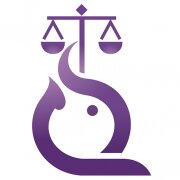Best Discrimination Lawyers in Bangkok
Share your needs with us, get contacted by law firms.
Free. Takes 2 min.
List of the best lawyers in Bangkok, Thailand
Legal guides written by Smart Legal Solutions:
- Main Legal Measures to Protect Foreign Investment in Thailand
- The importance of the geographical indications for the Thai economy
About Discrimination Law in Bangkok, Thailand
Discrimination in Bangkok, Thailand, is addressed through a combination of constitutional provisions, national laws, and international commitments. The Thai Constitution guarantees equal rights and prohibits unfair discrimination on various bases, including race, sex, age, social or economic status, birth, and religion. In alignment with international conventions, Thailand is actively working towards eliminating discrimination in all social sectors, including employment, education, and public services. Bangkok, as the capital city, reflects these legal frameworks, providing a robust setting for addressing discrimination issues.
Why You May Need a Lawyer
Individuals experiencing discrimination may require legal assistance to navigate complex situations effectively. Common scenarios include workplace discrimination based on gender or race, denying access to public services for individuals with disabilities, or discriminatory practices in educational settings. Legal help is often essential for interpreting rights, negotiating settlements, or pursuing litigation if necessary. Understanding these rights and the legal recourse available can help victims seek justice and ensure their protection under the law.
Local Laws Overview
The legal framework against discrimination in Thailand is reinforced by several key laws:
- The Thai Constitution forbids wrongful discrimination and promotes equal treatment.
- The Labor Protection Act contains provisions against gender and age discrimination in employment.
- The Persons with Disabilities Empowerment Act ensures access and equal opportunities for disabled individuals.
- Thailand is a signatory to multiple international human rights treaties that require national compliance with anti-discrimination measures.
These laws are enforced by various government bodies and aim to protect the rights of individuals against discriminatory practices.
Frequently Asked Questions
What constitutes discrimination under Thai law?
Discrimination under Thai law involves unjust treatment based on personal characteristics like race, gender, age, disability, or religion, which affects a person's rights and opportunities.
Can foreign nationals seek protection against discrimination in Thailand?
Yes, foreign nationals are entitled to protection under Thai anti-discrimination laws, similar to Thai citizens, in cases of employment, public services, and other sectors.
What should I do if I face discrimination at my workplace in Bangkok?
If you face discrimination at work, document the incidents and seek legal advice. You may file a complaint with the Ministry of Labor or pursue legal action with the help of a lawyer.
Are there specific laws protecting LGBTQ+ individuals from discrimination in Thailand?
While there is no comprehensive anti-discrimination law specifically for LGBTQ+ individuals, the Thai Constitution provides overarching protections, and advocacy for more specific legal measures is ongoing.
How can discrimination in education be addressed legally in Bangkok?
Victims of discrimination in educational settings can report such incidents to educational authorities or seek legal recourse to ensure equal access and treatment as mandated by law.
Is there a government body overseeing discrimination complaints in Thailand?
The National Human Rights Commission of Thailand is one of the bodies that oversee complaints related to discrimination, ensuring human rights are respected and protected.
What are the potential remedies if I succeed in a discrimination case?
Remedies may include financial compensation, reinstatement in employment, policy changes, or other relief tailored to rectify the discriminatory actions.
How long do I have to file a discrimination complaint?
The timeframe to file a complaint may vary depending on the specific law applicable. Consulting with a lawyer can provide guidance based on your case's circumstances.
Can I settle a discrimination case out of court?
Yes, many discrimination disputes are resolved through negotiation or mediation, potentially leading to settlements that avoid the need for a court trial.
What role do non-governmental organizations play in cases of discrimination?
NGOs can offer support, advocacy, and sometimes legal assistance to individuals experiencing discrimination, helping to raise awareness and effects change at policy and community levels.
Additional Resources
- The National Human Rights Commission of Thailand: Offers information and assistance regarding human rights violations, including discrimination.
- Ministry of Labor: Provides resources and mechanisms for filing complaints related to workplace discrimination.
- Local NGOs such as the Foundation for Human Rights and Development: Provide support and advocacy services for victims of discrimination.
Next Steps
If you need legal assistance with discrimination issues, consider taking the following steps:
- Consult with a local lawyer who specializes in discrimination law to understand your rights and legal options.
- Reach out to government bodies or NGOs for guidance and resources specific to your situation.
- Gather all relevant documentation and evidence of the discrimination you have faced, as this will be crucial in building your case.
Taking these actions can help you seek resolution and hold discriminatory practices accountable in Bangkok, Thailand.
Lawzana helps you find the best lawyers and law firms in Bangkok through a curated and pre-screened list of qualified legal professionals. Our platform offers rankings and detailed profiles of attorneys and law firms, allowing you to compare based on practice areas, including Discrimination, experience, and client feedback.
Each profile includes a description of the firm's areas of practice, client reviews, team members and partners, year of establishment, spoken languages, office locations, contact information, social media presence, and any published articles or resources. Most firms on our platform speak English and are experienced in both local and international legal matters.
Get a quote from top-rated law firms in Bangkok, Thailand — quickly, securely, and without unnecessary hassle.
Disclaimer:
The information provided on this page is for general informational purposes only and does not constitute legal advice. While we strive to ensure the accuracy and relevance of the content, legal information may change over time, and interpretations of the law can vary. You should always consult with a qualified legal professional for advice specific to your situation.
We disclaim all liability for actions taken or not taken based on the content of this page. If you believe any information is incorrect or outdated, please contact us, and we will review and update it where appropriate.

















